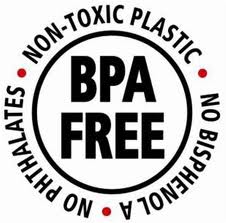
Take a minute to look around you, the room you’re in, the kitchen, the bathroom…we are surrounded by plastic in our everyday lives. However, research has shown that the increase of these everyday plastic items in our lives affects our general health and fertility.
Bisphenol A, or BPA, one of the main chemicals found in hard plastics and the lining of tin cans has been shown to decrease chances of conception by altering egg DNA, interfering with uterine cells’ ability to divide and prepare for possible pregnancy and inhibiting the embryo’s ability to attach to the uterus lining, leading to early miscarriage.
Direct studies have been carried out showing that certain levels of exposure to BPA can reduce chances of success with IVF.
“…Bisphenol A, a controversial chemical used to harden plastic packaging for many foods and beverages, may affect human reproduction, researchers report. Bisphenol A (BPA) could hurt the chances of successful in vitro fertilization, or the ability of embryos to attach to the uterus…”*
“While preliminary, the data indicate the negative effect of BPA on reproductive health and the importance of allocating more funding to further investigate why such environmental contaminants might be disrupting fertility potential.”**
BPA is known as a xeno-oestrogen. This means that it mimics our body’s own oestrogen, disrupting and/or blocking the finely tuned workings of our endocrine (hormonal) system, affecting ovulation, male and female hormonal balance and overall fertility. In men, studies have found that testosterone and follicle stimulating hormone (FSH) levels are affected, reducing sperm formation.***
Another study shows that exposure has also been connected with birth defects and developmental problems in children, especially in the early stages of foetal development which shows that reduce our exposure is not just of concern when it comes to fertility, but also during pregnancy, childhood and throughout our lives.
Phthalates, another harmful chemical used in soft plastics has also been shown to contribute to a reduction in sperm production, sperm abnormalities and genital deformities in men.
“The last few decades have seen steady and dramatic increases in the incidence of boys and young men suffering from genital deformities, low sperm count, sperm abnormalities and testicular cancer…they are called “hormone mimicking” or “endocrine disrupting” chemicals and they may be starting to damage the most basic building blocks of human development”.****
The solution here is to avoid exposure to plastics as much as possible where you are able to choose alternative options. Our main exposure is through plastic bottles and storage containers that are in direct contact with food.
Here’s how to reduce exposure in your own kitchen & food items
- Dispose of your plastic food containers. Purchase glass boxes (with plastic lids is fine) and use regular ceramic plates/bowls or recycle glass jars to store left-overs (honey jars, tahini jars, peanut butter jars etc). If glass storage containers are too pricey, at least purchase BPA free plastic containers. Although considered ‘healthy plastic, BPA free plastics are still plastic and their effects on our health are also largely unknown. Stick to glass where possible.
- Buy drinking water in glass rather than plastic bottles.
- Buy stainless steel, glass on-the-go or at the very least BPA free water bottles and fill them up at home to minimise drinking out of plastic bottles.
- Remove all fruit and vegetables from plastic wrapping as you unpack your shopping bag at home (of course, it’s best to buy produce that is not wrapped in plastic wherever possible).
- Buy in bulk to avoid so much packaging.
- Limit your consumption of canned foods. Stick to fresh, organic produce or produce sold in glass jars.
- Bring your cloth bags to the supermarket with you to avoid resorting to store-bought plastic bags.
- We don’t need to mention here not to re-heat food stored in plastic packaging in the microwave as, reference this article, you won’t be using your microwaves at all! Heating plastic increases toxins leaching out. The same happens when storing fatty foods in plastic.
- Replace all kitchen plastic utensils, bowls etc with wooden and steel utensils and ceramic or glass bowls.
- Don’t use plastic wrap. Replace with paper sandwich bags or use glass storage boxes.
- Use natural fiber brushes to clean the dishes.
- Limit handling of shop receipts as these contain a high level of BPA.
- When buying food on-the-go, avoid food in plastic packaging.
How to reduce exposure in your bathroom
- Buy beauty products in glass containers, or make your own.
- As mentioned above, heating increases toxins being leached out of plastic. Therefore, avoid PVC shower curtains and buy nylon, polyester or shower curtains made from natural fibers.
- Use organic cotton personal care products without applicators or other personal care alternatives.
Buy wooden toys and objects made of natural materials rather than plastic (you’ll be surprised how much plastic you can cut out of your environment). Last but not least, think about what a wonderful service you’re doing for the environment by reducing your non-biodegradable plastic footprint. Our individual choices affect the entire planet’s health. Anything that’s negative for the environment is also negative for us.
What steps have you taken to reduce your exposure to plastic in your daily life?










